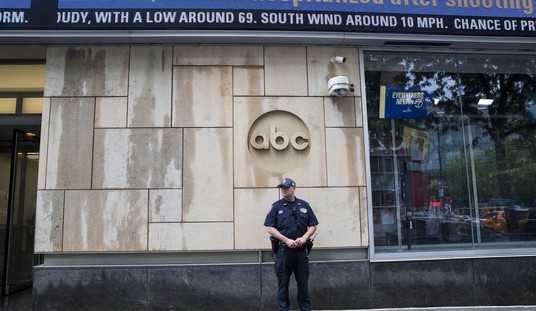This is a fair way off the beaten path, but given how many stories we cover here about the decline of higher education and the death of free speech on American college campuses, it certainly seems relevant. Dr. James Joyner has a disturbing article at Outside the Beltway which begins with a seemingly mundane proposition. Student Evaluations of Professors Should be Illegal.
As I said, if we’re launching into a discussion of teacher evaluation systems which fall outside of the debate over Common Core in public schools, it sounds as if we’re getting pretty far down in the weeds. But this is something different. When college professors come up for review, one criterion they are judged on is how well or poorly their students rate them at the end of the semester. So what’s the problem with that, right? The students are, after a fashion, the “consumers” who are taking in the “product” offered by the university and the professor. Who better to ask?
As it turns out, those evaluations from the professors’ young charges aren’t always very fair. In fact, according to at least one study Joyner cites, they tend to be blatantly sexist and racist. After linking one report from Texas Tech political scientist Kristina Mitchell and her co-author, Jonathan Martin, which compares student evaluations to the comments section of a blog post, it’s pointed out that there are trends in precisely who gets the worst reviews.
A new study I published with my co-author examines gender bias in student evaluations. We looked at the content of the comments in both the formal in-class student evaluations for his courses as compared to mine as well as the informal comments we received on the popular website Rate My Professors. We found that a male professor was more likely to receive comments about his qualification and competence, and that refer to him as “professor.” We also found that a female professor was more likely to receive comments that mention her personality and her appearance, and that refer to her as a “teacher.”
The comments weren’t the only part of the evaluation process we examined. We also looked at the ordinal scale ratings of a man and a woman teaching identical online courses. Even though the male professor’s identical online course had a lower average final grade than the woman’s course, the man received higher evaluation scores on almost every question and in almost every category.
The study goes on to point out that they found similar discriminatory trends based on whether or not the professor was a minority, spoke with an accent, or was in any other way, not a “white, cisgender, American-born man.” From this, Joyner offers the following conclusion:
Evaluating teaching effectiveness is incredibly subjective. But study after study after study has demonstrated that student evaluations are all but worthless—and, yes, biased. Given that, I find Mitchell and Martin’s argument that using them in making hiring, retention, and promotion decisions amounts to illegal discrimination compelling.
In terms of both the problem and the solution, I’m a bit conflicted here. I see the findings of rampant discrimination alarming enough to bring to your attention, but also puzzling. These are university students, presumably among the best and brightest of our young people and, from all social media accounts, typically the most “woke” and embracing of diversity in all its forms. How could they possibly be so tilted in this fashion? It makes no sense unless huge numbers of them are a bunch of posing hypocrites who don’t practice what they preach.
The only alternative explanation would be that the students are offering fair assessments, but the female and minority professors are just worse. (And I don’t think anyone is going to like or even believe that answer. Nor should they.)
As to what to do about it, this seems like the last thing in the world that needs government regulation. Do we really want laws dictating who gets to do a review of professors seeking advancement or tenure? Setting minimum standards for public school teachers is one thing, but this seems rather deep for Big Brother to be sinking his claws into universities. They should be able to sort this out themselves, don’t you think? If the evidence is this obvious and so many professors agree that the students are incapable of offering an unbiased review, ask them to replace the evaluation with something else. Perhaps reviews by their peers who sit in on lectures? Just a thought, anyway.







Join the conversation as a VIP Member